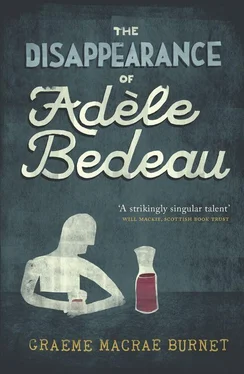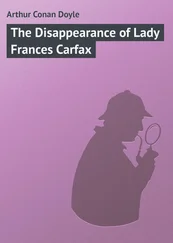When Manfred went to the station to catch the 17.35, Alice’s car had gone. He wondered what she might be doing. Perhaps she was seeing her repellent ex-husband. Manfred purchased his ticket and arrived at the platform a little earlier than usual in order to ascertain whether he was being followed. It was a pleasant evening. To the east, the sky above Basel was already taking on a pinkish hue. A smartly dressed man in his mid-thirties was standing on the platform holding a folded newspaper in his right hand. Manfred was not sure if he had already been on the platform when he arrived. He walked across his eye line and continued to the end of the platform. There were few other people around, but the man appeared to be consciously avoiding looking in Manfred’s direction. As he approached the man for a second time, he turned and raised his eyes to the departure board. The Strasbourg train was due in two minutes.
Manfred positioned himself behind the man, in the doorway of the little brick waiting room. He had no doubt that the man was aware that Manfred was now watching him. He enjoyed the idea that he had turned the tables. He was quite sure his actions would be noted and reported back to Gorski: that he had not been at all cowed by the fact that he was being watched; indeed, that he had behaved like a man who had nothing on his conscience. When the train pulled in to the platform, the man had no choice but to get on first, clear evidence that he already knew where Manfred was heading. Manfred was tempted for a moment to stand on the platform and watch the train pull away with the detective aboard. He imagined the cop leaping to his feet and banging on the door to be let out and then having to shame-facedly inform Gorski that he had lost his quarry. Amusing though the idea was, it would ruin the carefully constructed illusion that Manfred was behaving exactly as he normally would. Besides, would it not seem peculiar if, having bought a ticket only a few minutes before, he failed to board the train?
The man had taken a seat at the end of the carriage. He gave every appearance of being engrossed in his newspaper. Manfred sat at the opposite end of the carriage and took his book from the pocket of his raincoat. The man did not once raise his eyes from his newspaper. But why should he? He already knew Manfred was on the train.
As the train sped through the countryside, Manfred realised there was a flaw in his plan for the evening. He would be observed going to the cinema. That in itself was not a problem. It would be easy enough to recount, if required, the actors and narrative of the film he went to see. But, as his trip was intended to give the impression that he was in the habit of going to the cinema in Strasbourg, he might be asked what other films he had seen on other occasions, at what time, in which cinema and so on. Such information could easily be checked. On top of that, there was a cinema in Saint-Louis not five hundred metres from Manfred’s apartment. Why would he travel eighty minutes by train to go to the cinema when he could do the same thing on his own doorstep? Manfred resolved to buy a newspaper in the station to ensure he did not see a film that was showing in Saint-Louis.
Manfred imagined the questioning that would ensue:
You bought a newspaper when you reached the station?
Yes. I wanted to check which films were showing.
So you didn’t know which film you were going to see before you took the train to Strasbourg?
No.
Why not go to the cinema in Saint-Louis?
I didn’t want to see any of the films that were showing there.
What films were showing?
And, thus, he would be found out. Instead, he should make directly for a cinema — the little one on Rue du 22 Novembre that showed obscure foreign films — and buy a ticket for the first film that was on. If there was time to kill, he would have a glass of wine or something to eat in a nearby café. What could be more normal than that?
By the time the train pulled into Strasbourg, Manfred was feeling quite pleased with himself. The man with the newspaper was first to leave the carriage. Manfred followed him off the train. The man walked rapidly along the platform onto the concourse, not once looking over his shoulder. He appeared to be in a hurry. He dropped his folded newspaper into a litter bin without breaking his stride. It seemed a strange thing to do. Why, if he had finished with the newspaper, had he not left it on the seat of the train? Perhaps, knowing that he had been spotted, it was a pre-arranged signal to another operative waiting at the station. Quite spontaneously, Manfred decided to follow the first man. He almost broke into a run so as not to lose him as he strode across the concrete expanse of Place de la Gare. For a moment, Manfred felt quite exhilarated. He was in control of events. The man crossed into Rue de Maire Kuss and continued to walk briskly. At no point did he look over his shoulder.
Manfred kept about twenty metres back. The man was not difficult to follow. He was taller than average and was wearing a light linen suit. He was, in fact, rather conspicuous. After a few minutes he entered a brasserie. An attractive woman sitting at a table in the window stood up. There was a glass of wine on the table in front of her. They greeted each other with a kiss on the lips before the man sat down at the table and summoned the waiter. Manfred stood dumbly observing this vignette from the pavement outside. The waiter arrived and the man ordered a drink. Then he glanced out of the window and saw Manfred on the pavement outside. A puzzled expression flitted across his face as if he was trying to place him, but his gaze did not stay on him for more than a second and he quickly returned his attention to his companion. Manfred suddenly felt ridiculous. He could hardly remain there spying on them. And to what end? He turned away abruptly and bumped into a woman walking in the opposite direction. She muttered a derogatory comment under her breath.
Manfred felt a sudden and vicious desire for alcohol. Not for his usual glass of wine, but for something that would provide swifter inebriation. He turned into an alley where he was sure he could find a suitable watering hole. He almost burst through the door of the first suitable establishment, a dimly lit place where alcohol was consumed in the candid pursuit of intoxication. Such was his relief at reaching the counter, he could not for a moment decide what to order. The barman looked at him impassively.
‘Monsieur?’ he said.
‘A whisky, please,’ Manfred said. The barman indicated with a gesture of his arm the array of bottles behind the bar.
‘It doesn’t matter,’ he said, trying to keep his voice even. ‘Anything.’
The barman nodded, selected a bottle and poured the drink at a leisurely pace. Manfred fidgeted at the counter. His hands were shaking. He wanted to yell at the barman to hurry up. The barman placed the drink in front of him and, without any thought for decorum, Manfred downed it in one swig. He breathed out slowly, eyes closed. The whisky warmed the back of his throat and worked its way down to his stomach. When he opened his eyes, the barman was watching him impassively.
‘Another?’ he asked.
Manfred nodded gratefully. He downed the second whisky as he had the first, then a third. He found himself a stool and sat down. The fourth he nursed for a while. What an idiot he was. This whole trip to Strasbourg was a charade, enacted for an audience of one. Yet there was no one to witness his performance, no one to report back to Gorski. It mattered not if he went to the cinema, to Simone’s, or sat here in this dive or any other getting blind drunk. Nobody was watching him. Nobody cared where he was or what he was doing. Not even the barman, who was plainly unperturbed by Manfred’s determination to get sozzled. His actions were not going to be called before a court of law and picked over. What Manfred chose to do was of no consequence to anyone other than himself. And yet, even as he realised this, had he not sought out a bar without windows in a secluded street where he could not be seen?
Читать дальше












